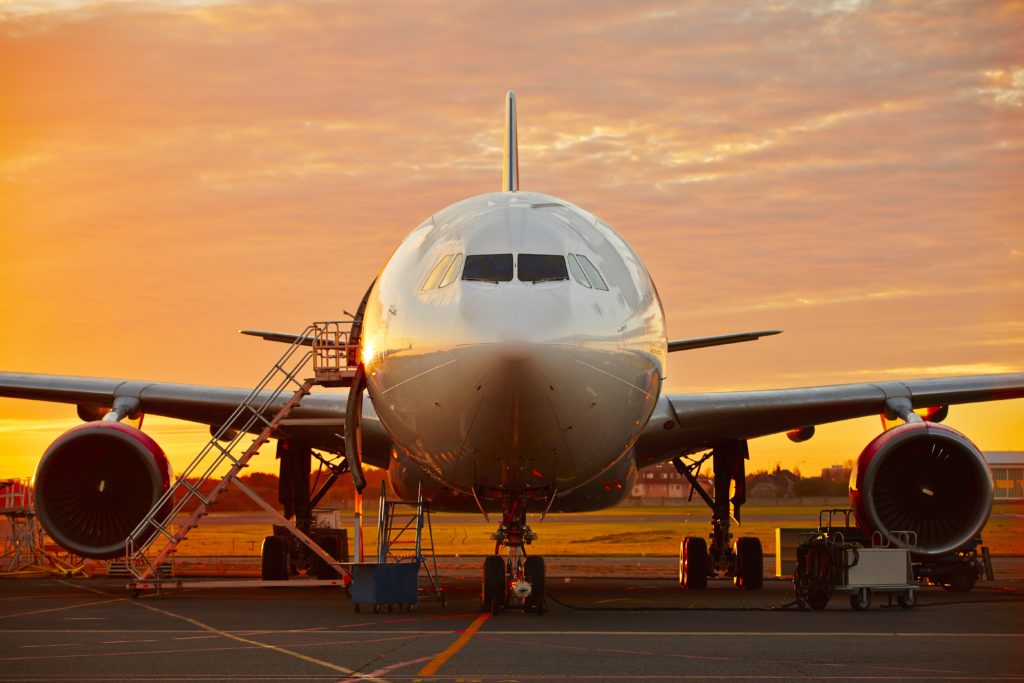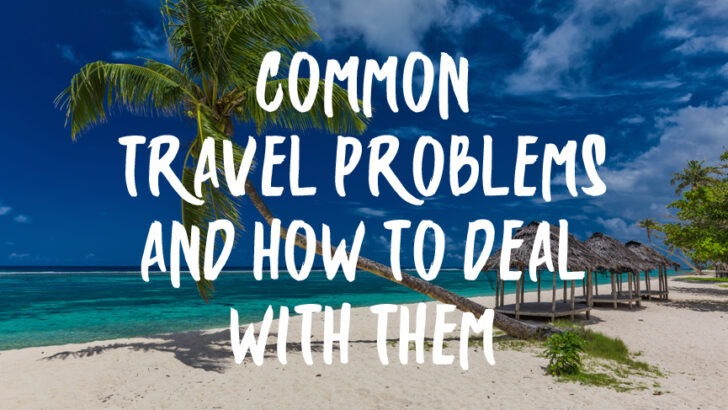For most people, the idea of travel represents a break from reality, a much-deserved sojourn from the stresses and demands of everyday life. However, even though you might be thousands of miles away from your problems, there’s always the possibility that something could go wrong. No matter who you are or whether you’re travelling to Namibia or Thailand, no one is immune to potential mishaps that sometimes happen on the road. This isn’t to say that the activity of travelling is fraught with perils – far from it. But it’s certainly a cautionary tale about the types of things that could possibly go wrong if you’re not paying attention or simply very unlucky.
With that in mind we’ll take a look at a few of the more common problems that occur while travelling, and how you should deal with them in the event that you become embroiled in a travel nightmare.

Your Wallet Gets Stolen
It could happen to anyone at any time in any place – your wallet gets stolen. This can be a distressing experience even under normal circumstances, but when you’re in a foreign country it’s particularly terrifying. After all, your wallet contains not just your cash, but your ID, health insurance details, bank cards and even in some cases your passport (but more on that later).
If you find yourself in this situation, the first thing you should do is contact the local police immediately, making sure to get a copy of their report with your statements concerning the incident. Next, contact your bank and report your cards as stolen – some banks are able to post you a replacement card, meaning you won’t have to worry about not having cash on hand. Next, you’ll want to contact your travel insurance and report the crime. This last action is time-sensitive since many travel insurance companies have strict time constraints regarding when you report the crime, so ensure you’re within their parameters if you want to be fairly compensated.
Your Flight Gets Cancelled

Even the best laid plans go awry and the same is true of flights. It’s pretty common for flights to be delayed, and sometimes they get outright cancelled altogether. While it’s not going to cost you any money – the airline will simply put you on the next available flight – it is incredibly annoying and inconvenient. Often you’ll have to wait around for hours without any information only to be told that the flight won’t be taking off.
Once you realise that you’re going to stay grounded, go straight to the appropriate airline representative and inquire about the situation. If an airline is at fault and the next available flight isn’t for some time, they’ll have to give you meal vouchers and put you up in a hotel for the night. It’s important that you hold on to all of your documentation and maybe take some photos to corroborate the incident, because if the delay caused by the flight cancelled is long enough, you’ll be eligible for flight cancellation compensation. You’ll have to contact the airline by email or phone afterwards and they’ll make you jump through a few hoops, but generally they always pay if the fault is theirs. The exact amount of compensation you can claim depends on a number of factors such as the length of the delay and the distance of the journey you were meant to travel, but amounts start at €250 and €600. So if you’re a traveller on a budget, losing a day of travel for a night in a hotel, a day’s worth of meals and €600 spending money might actually not be the worst thing in the world.
Your Lose Your Passport
This tops the list of every traveller’s worst fear. Losing your passport in a foreign country is a possible disaster and a definite nuisance. Without one, you won’t be able to enter or leave the country and might even have trouble proving your identity.
In the event that you lose your passport (or it gets stolen), contact the local police immediately and report that it’s gone missing. If anyone turns it in, they will ensure that you and your passport are reunited in good time. In the meanwhile, schedule an emergency meeting with your country’s consulate and file for a replacement passport. Generally you’ll need to provide them with another form of ID such as a driver’s licence but if you don’t have one, there are ways of proving your identity otherwise. Lastly you’ll need to contact your travel insurance (see why it’s so important?) and report the incident to them. Many insurance packages offer compensation for a lost passport so they may be able to help you recoup the costs of getting a new one made.
Your Luggage Gets Lost
Standing by the conveyor belt after your flight lands is an exercise in patience for most people – but it’s even worse when your bag doesn’t show up after an hour. It helps to stay calm and find the nearest help desk. They’ll direct you to the airline counter that is set up especially to deal with these cases. In almost every single case your luggage won’t truly be lost – it’ll simply have been lost in the churning, complex inner workings of international luggage logistics between airports, and the airline will recover it soon enough.

In the event that your baggage actually does get lost, however, the airline will have to compensate you, calculated based on both for the value of the items inside as well as the duration that it takes them to deliver a solution to you. It helps to have your bag clearly marked with your name and contact details, as well as to keep all of your valuables safe in your hand luggage.
You Get Ill Mid-Travels
Travelling abroad, especially to developing countries, means trying new local cuisines and exposing yourself to different climates and possible diseases, so getting ill during the middle of your trip is fairly likely to happen. This doesn’t mean you’ll contract anything life-threatening, but you’ll probably get hit with traveller’s diarrhoea or something similar.
When travelling it’s always prudent to research the areas you’re going to beforehand and get vaccinated for any prominent pathogens and diseases that occur there. If you find yourself affected by a mild sickness that isn’t too serious, simply rest in your hostel or hotel, drink lots of water and wait for it to pass. If it’s anything more serious, visit a local doctor but be sure to keep the receipts so that your travel insurance can pay back any medical costs in full.
Amar was born and raised in England and embarked on an 11-country round-the-world gap year after graduation and then became well and truly hooked. The first gap year inspired a second, which ended up being a 23-country down-the-world trip from Canada to Antarctica. Since then, Amar has spent the last 14 years traveling the 7 continents.


Anna Makridi
Monday 3rd of December 2018
Such an interesting post! Thanks for sharing!